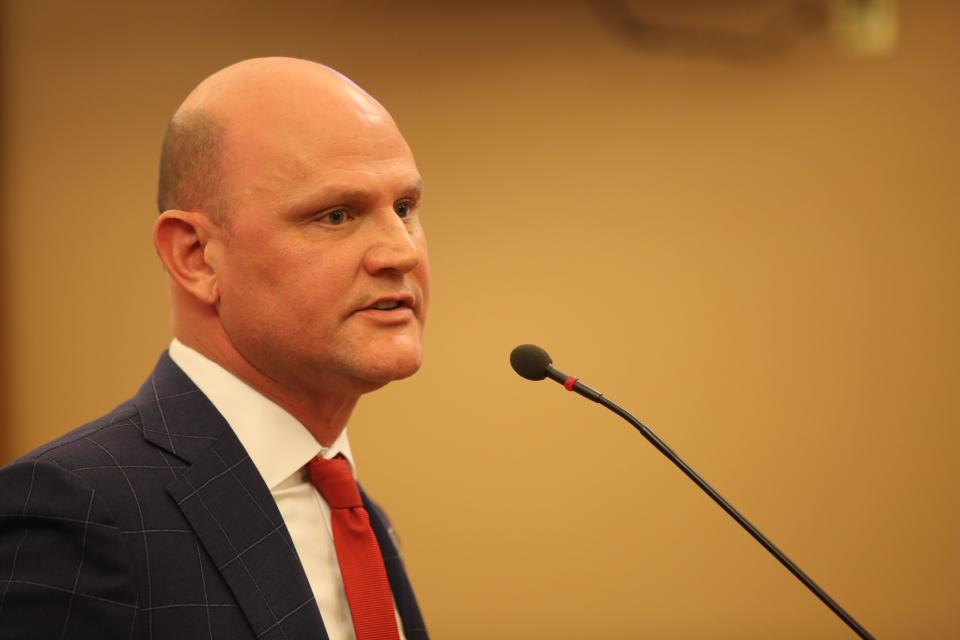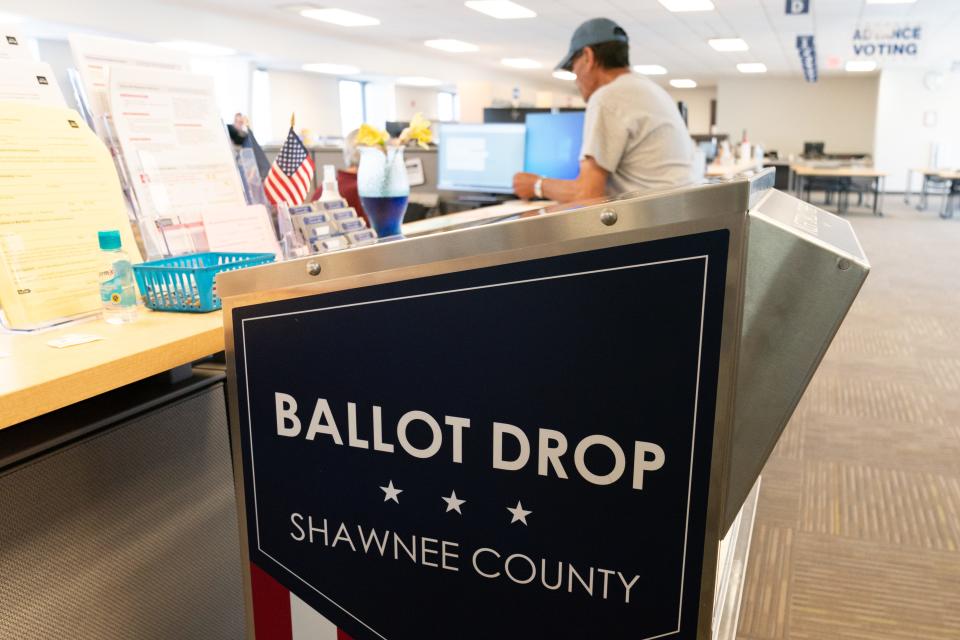Kansas presidential primary had low turnout, high cost and no impact on chosen candidates
- Oops!Something went wrong.Please try again later.
- Oops!Something went wrong.Please try again later.
- Oops!Something went wrong.Please try again later.
The Kansas Legislature in 2023 approved a rare state-run presidential primary for the first time in decades and only the third time in the state's history.
When it passed, the move was touted as an expansion of the voting access, rather than a caucus, which is more time consuming and less democratic.
But it also moves the responsibilities from statewide parties to the secretary of state and the cost from party donations to state funds. The budget for Tuesday's primary was $4.8 million, and the unofficial results show about 135,289 people cast a ballot in the election, a bit more than $35 per vote.
"Spending $5 million for 125,000 voters is probably not the most efficient use of state dollars," Secretary of State Scott Schwab said while polls were still open on Election Day.

When those 135,000 voters cast their ballots, the race was already decided. Both incumbent Democratic President Joe Biden and former Republican President Donald Trump secured their nominations after winning nearly every race, with the exception of Vermont and Washington, D.C., for Trump and the U.S. territory Guam for Biden.
"Although the nominees for the general election are already decided, it's crucial we do our civic duty and exercise the right to vote in each and every election," Gov. Laura Kelly posted on social media.
With the national race settled before the race in Kansas began, the presidential preference primary became a way to signal the favorability of candidates than a competitive election. The Kansas Republican Party set the ambitious goal of becoming the state with the highest percentage of votes for Trump.
"The State of Alabama currently leads the nation with 83.2% voting for Donald Trump in their Republican Primary Election. Kansas can beat this percentage but it's going to take all of you," a Kansas GOP email said on March 8.
Trump didn't get there according to unofficial results, which clock him at about 76% of the 94,125 votes cast in the Republican primary. He was trailed by Nikki Haley at 16%, Ron DeSantis at 3% and Ryan Binkley at 1%. The remaining 5% of the Republican voters chose a write-in candidate that wasn't on the ballot.
But overall, Trump got about 52% of all votes cast in the state, and just a little more than double what Biden got.
Biden's closest challengers have also conceded, including Marianne Williamson with 3% of the vote, Dean Phillips with 1%. Jason Palmer with 1% of the Kansas vote hasn't conceded but has no viable path to the nomination. About 10% of Democrats chose a write-in candidate.

But the voters were just a tiny slice of the electorate. Fewer than 11% of registered Republicans cast a ballot, and just 8% of Democrats ended up voting. Primaries typically have much lower turnout than the general election, but even in 2020 with no presidential candidate on the ballot about 34% of registered voters cast a vote.
It did attract more people than the last Republican caucus in 2016, in which about 73,000 people voted. The state Republican party decided against holding presidential primaries or caucuses in 2020. That same year, the Kansas Democratic Party held its first ever ranked-choice primary, and garnered 10,000 more votes than the total number of voters in this year's presidential preference primary.
The election doesn't gauge the second-largest political faction in Kansas, though. Unaffiliated voters account for 561,674 registered voters, fewer than the 871,136 registered Republicans and more than the 504,452 registered Democrats.
Allowing Independents to vote is one of two prescriptions Washburn political scientist Bob Beatty recommended in a March 16 column in The Capital-Journal.
"First — like many other states do — allow unaffiliated voters to participate without joining a party, and second, the primary must be held on or before Super Tuesday, making the process actually meaningful," Beatty wrote.
Will there be a fourth presidential preference primary?
The legislation that approved the primary only applies to the 2024 election. Schwab speculated that future nomination processes probably won't follow the same mold in future contests.
"I would imaging going forward we'll probably take what is viewed as a political activity and give it back to the political parties," Schwab said.
The $5 million price tag could be reduced if it were tied to the statewide primary races, but that would push it back to August after the party conventions where they'd announce nominations.
"I think that if Kansas was a state where it did make a major difference, that's probably a different discussion," said Brenda Landwehr, R-Wichita, a critic of the original change to the primary process. "But it doesn't, so it's all about party, so that's why I think it should stay with the party."

Both parties, which saved money with the state administering the election have been mum through official communication channels as of the Thursday after the election, and Republican and Democratic party communications officials didn't respond to The Capital-Journal's request for an interview.
To try a statewide presidential preference primary again, legislators would have to approve a law conferring responsibility to the state for the process.
The bill that authorized the election passed with a narrow supermajority in the Senate but recreating it after Tuesday's results may be a bigger ask.
This article originally appeared on Topeka Capital-Journal: Kansas presidential preference primary had low turnout and high cost

